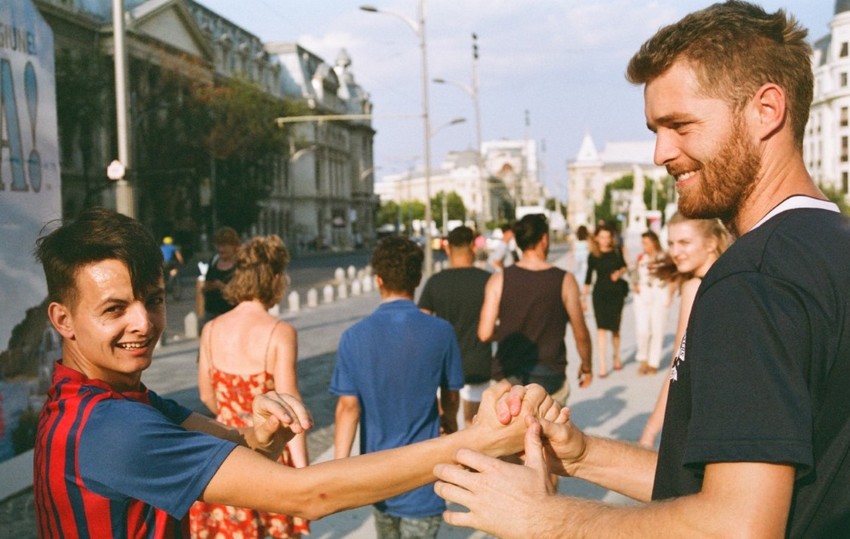A childhood in care and then living on the streets: observations by Emmaus Satu Mare
Of the people living on the streets in Europe many spent part of their childhood in care. This is also the case for many of Emmaus’ companions.
In Romania an Emmaus community has been created specifically to help young people who are coming out of care institutions during the transition to adult life, ensuring that they don’t end up on the streets during this period. We’ll be hearing about the initiatives led by Emmaus Satu Mare from the Chair of this group, Jean-Philippe. Their initiatives may inspire other Emmaus groups based elsewhere in Europe…
Hi Jean-Philippe, could you tell us a little bit about how your community works?
Our group was born from a desire to offer an alternative to young people of legal age who had previously been cared for by social services but who, at the age of 18, suddenly have to fend for themselves without proper preparation for the adult world. We help them to rebuild after they have been through experiences which are often quite traumatic so that they can start to think about their futures. We do this by teaching them the basics they will need for daily life and for the working world. Our community is like a bridge between care institutions for minors and the open seas of independent adult life.
Although there are similarities in the challenges faced by children in care in different countries there is a specific context behind these situations in Romania, could you tell us a bit about this?
Many of you will remember seeing the images of Romanian orphanages that shocked the world in the early 1990s. The terrible conditions in Romania under Ceausescu, the terrible vision of disability from the 1970s onwards (defining children as either ‘recoverable’ or ‘unrecoverable’), the absurdity of the institutional care system (where children were seen as patients, students and apprentices but never as children who had needs of their own) and the negligence which has had dramatic consequences on many children, all of this transformed these huge orphanages (which housed hundreds of children) into places of terrible suffering.
When Romania joined the EU in 2007 the material situation for children in care institutions improved greatly. On the other hand, the level of training of care staff remains inadequate and mentalities have also been slow to change. In many situations, and despite the various forms of financial support available, young people leave the protection system at the age of 18 having suffered several traumatic experiences and without proper preparation for independent adult life.
Do you focus on training to enable these young people to move on from your community?
We work on teaching them key skills in order to deal with the challenges of independent life:
- Personal and social skills: thanks to our team of 3 educators, young people can learn to cook, to clean, to look after their personal hygiene and their health, to manage their money and to better handle relationships with other people. They also have weekly discussions with their designated educator as well as having the opportunity to see a psychologist on a weekly basis or to participate in support groups and training workshops twice per month
- Professional skills: by working on different tasks in the community (cleaning, cooking, sorting objects, selling objects, sewing textiles, etc.) these young people learn basic skills such as punctuality, teamwork, dealing with responsibility and how to put your phone away when you are at work!
And what do these young people go on to do next after their time with the community?
If a young person is ready to go into the working world then we will help them to find a job. We will stay in touch with their employer to monitor the situation until they have become settled in the role.
Furthermore, during their time with the community it is compulsory for these young people to save part of their wages. Thanks to these savings, in addition to a loan provided by our association and/or a bank loan, if they are interested then these young people can buy a flat when they leave our community. In the local area the rental market is not good and thus this is the best way to ensure that they do not end up on the streets as well as providing them with stability. We continue to follow up with these young people on a regular basis, depending on their needs. Those who have been given a loan by our association to buy a flat cannot sell the property without our approval in order to help avoid situations where they are the victims of people with poor intentions. 13 young people have been able to buy a property since 2019.

© Emmanuel Rabourdin



